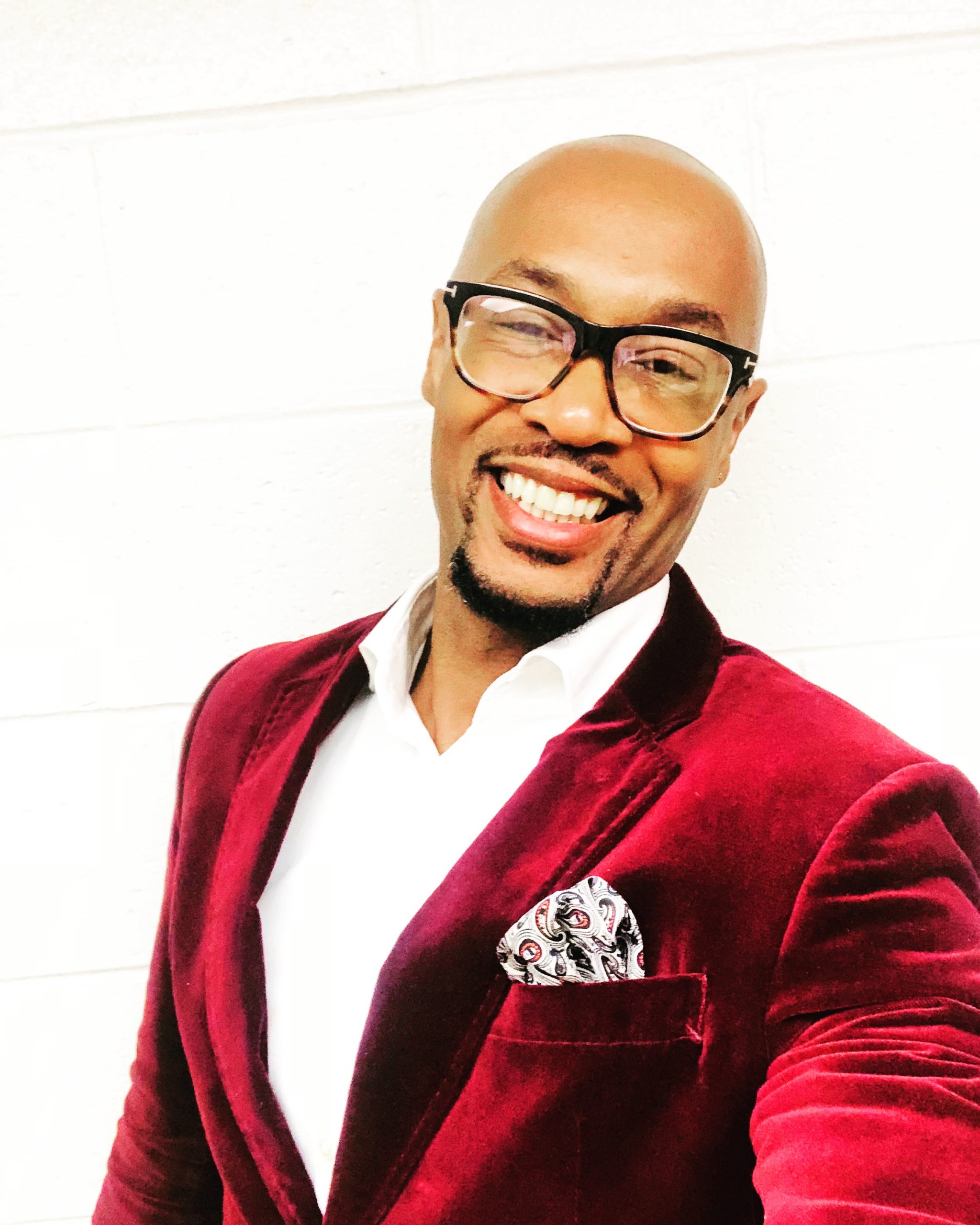Why does pride lead to a downfall? The deadliest of sins!


By Antoine G Larosiliere
If you’re proud like I am, you’ve probably wondered at some point, why does pride lead to a downfall?
I’m sure you’re familiar with the saying, “swallow your pride.” It is often said when you don’t want to do something that others think you should. You felt you did nothing wrong, and that your actions are justified. Well, that thing that’s keeping you from listening to their advice is called pride, but why does pride lead to a downfall? Pride is damning and dangerous because of its ability to hide within us. The very thing that causes us to act foolish, also blinds us to our foolishness. It eludes us and hides from us, while causing us to reject the help of others. As a result, we become overconfident and self-centered.
Pride has evolved and it could be somewhat confusing, but after doing some research and applying some personal experience to the topic; I was able to make sense of it all.
Now lets learn how to truly identify pride and understand the impact it has on all of us.
“pride is an excessive belief is one’s abilities that blinds an individual’s recognition and gratitude of the help they received.”

What is pride?
According to dictionary.com pride is a high or inordinate opinion of one’s own dignity, importance, merit, or superiority, whether as cherished in the mind or as displayed in bearing, conduct, etc. Currently the world is in a state of social awareness and acceptance and to minority groups pride means being able to be your authentic self, being happy for who you are and standing up for yourself. The definition I’m most comfortable with that takes into consideration other factors is; “pride is an excessive belief is one’s abilities that blinds an individual’s recognition and gratitude of the help they received. However, just having an excessive belief in yourself alone is not pride. Pride is also referred to as vanity, and biblically referred to as “the first sin.” Other aspects of pride you might be familiar with include…
- Selfishness
- Self-centered thoughts
- Over inflated sense of self
- Self-worshiping
- Preoccupation with image
- Narcissism
- EGO-centric ideas and behavior patterns

What does pride look like?
How do you know you have too much pride? What does too much pride really look like? With there being different interpretations of what pride is or isn’t, we all could use some clarity on what to look for. Let’s examine what’s inside us and expose if there’s any pride hidden deep within. If you have too much pride, it may manifest itself by…
- Not listening to teachings or advice because you assume you know it all: You assume the other person has inferior knowledge and believe they have nothing they can teach you.
- Believing certain jobs or duties are beneath you: Not only is this a sign of too much pride, but also poor leadership. When you have a distorted and excessive view of yourself, you forget that you are just like everyone else, you develop a superiority complex.
- Would rather struggle and stay ignorant instead of asking for help: Great leaders know when to seek help and show humility. Being able to look yourself in the mirror and admit you need help is courageous and filled with humility.
- Constantly imposing your knowledge on others: The type of person that tries to dominate every conversation and always wants to impart their knowledge without your consent or request. They leave very little room for others to share and refute any conflicting insights without truly hearing it.
- Dismissing the advice and insight of others: These people truly believe they know it all and think other’s knowledge and insight is inferior to theirs. They believe they can succeed without the advice and counsel of others.
- Refusing to submit to authorities: They don’t respect authorities because they believe they should be the authority. They are convinced their virtues should be the model by which all others follow.
- Defensive towards everyone: Often people who are defensive have something they are hiding. It could be their incompetence, their lack of confidence or any shortcomings that might cause others to perceive them differently. Their pride is a mask to hide their flaws or insecurities, so they will be defensive and defend the false image they worked hard to build.

What does pride feel like?
Pride feels like excitement for what lies ahead and the immediate tasks in the present. It’s an elevating sense of accomplishment for what you’ve done in the past. It’s an over confident feeling of your abilities, or a feeling of superiority amongst your peers and others. Other feelings associated with pride include…
- Sometimes you’re fearful about the future
- Worried about what others think of you
- Feel and act guarded
- Easily offended and sensitive
- At times unenthusiastic
- Threatened

What are the causes of pride?
They say pride is the deadliest sin since it tends to blind us from seeing ourselves. Pride also rejects the help and counsel of others. So, once we’re too prideful, is it too late to do something about it? The only way, I can see someone changing the course of their inevitable downfall is by remembering where they came from. What I mean is, to remember the events and attributes that can cause someone to be too prideful. Simply put, pride is birthed from deep insecurity, fear, and unworthiness. The causes of pride include…
- Pain, brokenness, and hurt: We’ve all been through some form of abuse, neglect, hurt or brokenness that we probably haven’t healed from. Many of us suppress the incident because it’s too painful to remember, but suppression won’t lead to healing. Uncovering that hurt and facing it with healthy habits is the only way to truly mend. We need the help of experts, ministers, therapists, mentors to help us find our inner strength, peace and happiness.
- Verbal abuse: Verbal abuse is a common cause of which I have a personal experience with. When you’re constantly being insulted, humiliated it forms your thinking process and behavioral patterns. In other words, if you’re told you’re worthless enough times, you’ll begin to believe it. Pride tries to cover up this belief, by making the world see something else. But, deep down inside you don’t believe what you’re projecting to everyone else, and you’re afraid of the world finding out the truth.
- Low self-esteem: You purposely don’t put yourself first, and you’re self conscious about what to say or do. You don’t believe in yourself, and you believe others will take advantage of you, so you pretend. You pretend to be confident, strong, and bold; hoping one day that can be really you. You’re defensive towards criticism because you believe them and they remind you of your past hurt.
- Poor self-worth: It’s more than just negative thoughts about yourself, your entire thinking process revolves around negativity. You don’t validate, affirm, and value yourself as you are, so you try to get others to do it for you. Your pride compels you to try to impress others, so they can tell you what you want to believe about yourself. You don’t believe you’re worth loving so you push others away. You believe everyone is better than you, so your pride galvanized you to do everything you can to prove to yourself and others that’s false.
- Shame: Often with pride, the individual is ashamed of who they are and what they’ve been through. We think what happened to us is somehow an indictment on who we are. We believe we were betrayed or violated because we deserved it, and they’re ashamed of being someone who deserves to get violated. We feel so bad about ourselves that we overcompensate by trying to be superior. We try to mask it by being overly proud, because we are terrified of our real identities and traumas to be revealed.
- False sense of entitlement: During childhood you were probably given everything you wanted without earning it. You probably did what you wanted to do with very little recourse for your actions. You were being conditioned to abuse privileges and not respect rules or consequences. You don’t have any real confidence because you never really had to earn what you wanted or received. Pride will make you project confidence, because you know you’re not. Pride will make you do whatever it takes to prove to yourself you could have earned those things you wanted or received.
- Lack of faith: You’ve lost your faith along the way. You don’t believe in yourself, or you don’t believe in a higher power. If you’ve lost faith in yourself, your price will do whatever it takes to mask that. If you’ve lost faith in God or whatever higher power to ascribe to, then you will dismiss God’s involvement in your achievements. You might even conduct yourself as if you are the higher power. You’ll be doing whatever you want and speaking anyway you feel like expecting no judgement or consequences.

What does the Bible say about pride?
I’m not one to be very religious in my thinking, but I do ascribe to the theory of a higher being. The Bible has several scriptures referring to pride, but there’s two in particular that I believe properly expresses the impact pride can have. Proverbs 16:18 says,“Pride goes before destruction, a haughty spirit before a fall.” In other words, pride will lead to your eventual downfall, or destruction. Pride is the key to someone ultimately sabotaging their image, their endeavors or their relationships. Proverbs 13:10 says, “Pride only breeds quarrels, but wisdom is found in those who take advice.” The proverb is referring to pride affecting communication to the point where speaking as well as listening is distorted, misleading, and offensive. The prideful dismisses advice while those who are wide enough to swallow their pride, takes advice.

When does pride become a sin?
To determine when pride becomes a sin, let’s stay on the premise of religion a little longer. The Bible refers to pride as “the first sin,” and the root to where all sins are birthed, but what makes it a sin exactly? Pride becomes a sin when…
- We believe we can do a better job than God: This is considered a sin because you reject the idea of a higher power, and reject anything above you to the point where you feel rules and laws don’t apply to you. You develop a God complex, where you believe you are God.
- Our pride inflates our self-esteem to the point where we mistreat others and take advantage of dyer circumstances: This is a sin because this is the tipping point where people are intentionally hurt and discarded. This is when we lose humanity, because we are over consumed with personal greatness, no matter the cost.
- Our distorted perception of our abilities create a sense of arrogance: When you’re arrogant; you’re often condescending and insulting to others. You don’t listen to anyone, because you place no value in other’s contributions or their concerns. You only do things that benefit you and without care or knowledge of who it hurts.
- We’ve taken too much credit for what we’ve accomplished and don’t show the proper respect for the direct or indirect help we’ve been given: We all get some form of help as we try to ascend and climb up the ladder of success and happiness. The sin lies when we blatantly disregard the assistance that was given. At the very least, you succeeded by the graces of God and that needs to be acknowledged. Not acknowledging his blessings in your life, is indirectly disregarding his existence.
- When you make an exaggerated and misleading appraisal of who you are and what you can do: It is sinful to mislead others by claiming to be something you’re not, or making false claims of what you can do. Other’s misguided belief in you, can hurt and compromise their situations. You are essentially lying, and when has lying not been a sin.

Are pride and vanity the same things?
The Oxford dictionary defines vanity as “excessive pride in or admiration of one’s own appearance or achievements,” and Merriam-Webster dictionary defines it as “the quality of people who have too much pride in their own appearance, abilities, and achievements. Some other qualities of vanity include…
- A vain person won’t realize that they’re vain. They will be so consumed with their appearance and abilities, where everything they do will revolve around it. It becomes part of their lifestyle and they can’t see the quality separate from themselves.
- Develop a false sense of humility and modesty. Vanity will blind you, not only about the accuracy of your physical appearance but also of your qualities. You will walk around cock and boastful, while believing you’re the opposite.
- Constantly looking for and requiring an audience. Without an audience, vanity can’t exist. Vanitiny needs the audience to validate the distorted perception they have of themselves. Even if the audience is one person or your reflection in the mirror; vanitiny at the very least needs your approval.
- Constantly defending and justifying their worthiness and superiority. Vanity causes us to refute the ideas of unworthiness and mediocracy. Vanity is meant to protect us from the truth, because the truth doesn’t help us forget our pain and trauma that gave birth to our vanity.
Within both definitions you’ll see the word pride, but more specifically the words “excessive pride” or “too much pride.” It seems as if the words pride and vanity are synonymous with one another, but is pride and vanity really the same thing?
Both vanity and pride come from the same insecurity; the belief that we are not worthy of love and happiness.
Pride- Places our own opinions, especially opinions about yourself, above those of anyone else.
Vanity- Makes our self-worth dependent on others’ opinions of us.
Pride- Consumes us with pleasing ourselves at any cost.
Vanity- Traps us in a cycle of trying to please everyone.
Pride- Believes they are worth loving but wants more than love.
Vanity- Wants to be told they are loved by everyone.

Why does pride lead to a downfall?
The Bible says that pride will lead to our downfall, but how exactly? How can one characteristic or one bad quality affect us so greatly? What makes pride so damming and dangerous is its ability to hide within us. The very thing that causes us to act stupid, also blinds us to our stupidity. We are not aware that we have pride, so we don’t pay attention to its tendencies, and we attribute those symptoms to other attributes. It eludes us and hides from us. What I’m trying to say is, “it’s hard to conquer a beast you can’t see.” Pride leads to your downfall because…
- It causes overconfidence: Overconfidence disguises our weaknesses and blinds us to potential dangers, and obstacles in our path. Without seeing these red-flags, you’ll take unnecessary risks that can lead to a financial collapse, career failures, disabilities, sicknesses and maybe even death.
- It causes self-centeredness: When you are overly focused on yourself, it’s almost impossible to truly pay attention to the people around you. You don’t notice who’s untrustworthy, who’s plotting against you, who’s insincere, or who really cares for you. Therefore, you are constantly susceptible to being sabotaged. Not to mention, all you do is talk about yourself, and people don’t generally enjoy the company of those types of people. You will repel friends, coworkers and find yourself alone often.
- It causes you to reject life changing assistance from others: There will be times when someone can offer you help that can save your life, your career, your financial welfare; but you’ll reject it. You will see yourself superior to them, and the thought of accepting their assistance offends you.

Can pride be good?
Everything that happens has a positive consequence and a negative consequence. The same thing applies to our attributes; they can have negative and positive effects. That brings us to our pride; we know all the negative consequences of having too much pride, but can pride be good? According to psychology professor David DeSteno, pride is a good thing that can move us toward our goals, and influence better behavior. In its most basic form, pride helps you achieve your goals. Therefore, pride doesn’t always come before the fall, it encourages the mind to appreciate and focus on the future. It sets you on a path of dedication and commitment to success. Other reasons why pride can be good are…
- You hold high standards: Pride is about setting high standards, and doing everything you can to live up to them. These standards are the platform to consistency and achievement. And once you have those high standards, you will need to work harder than someone who doesn’t have those high standards.
- You show little tolerance towards negativity: Your laser like focus refuses to allow you to get derailed. You block out every type of distraction, especially the negative ones. You don’t respond or tolerate negativity or any discouragement of your abilities or your path.
- Shows you have self-worth: Believing in your value and developing self-worth is a crucial component of mental health. When you have self-worth, you won’t let opportunities pass you by and you try to do everything you can to get your needs met. You become a confident and competent problem solver. You become courageous and efficient in your decision making. You develop healthier and more honest relationships.
- Pride spurs leadership: It motivates people to initiate action, offer guidance to those who need it and inspire others. It instills confidence and puts you in position to be a role model and be the conduit for morale. It promotes flexibility and ability to adapt to changing circumstances. One research found feeling pride has been shown to increase effort and success in salespeople.
- You look after your family and friends: There is nothing more honorable than looking out for your friends and taking care of your family. It’s usually on the top of our list of priorities, because it contributes to our self-worth. Yes, pride can absolutely do this.
- It can help you take steps to improve your self-discipline: An experiment led by German psychologist Wilhelm Hofmann found that pride increased self-control. Pride increases self-control when people previously didn’t have it before. Their pride stemmed from feeling good about who they are. It allows you to remain focused, in control of yourself and of your reaction to any situation. You’ll make wiser choices and have willpower to stay away from the wrong choices.
I hope what you’re doing and achieving doesn’t disparage others or sabotage your path to success. I hope you’re grateful for what you have and also beaming with authentic pride. But if not, don’t look to blame others. Look inside yourself, because that’s where the evil of too much pride lies. Hopefully this article has been helpful. Also visit my YouTube channel for more insight to these topics.
The Bully Experience "Daniel's Story"

Sign up for our newsletter and Read the novel For Free!
Stay updated. Sign up for our newsletter, and get the first two chapters of The Bully Experience Daniel’s Story absolutely free.